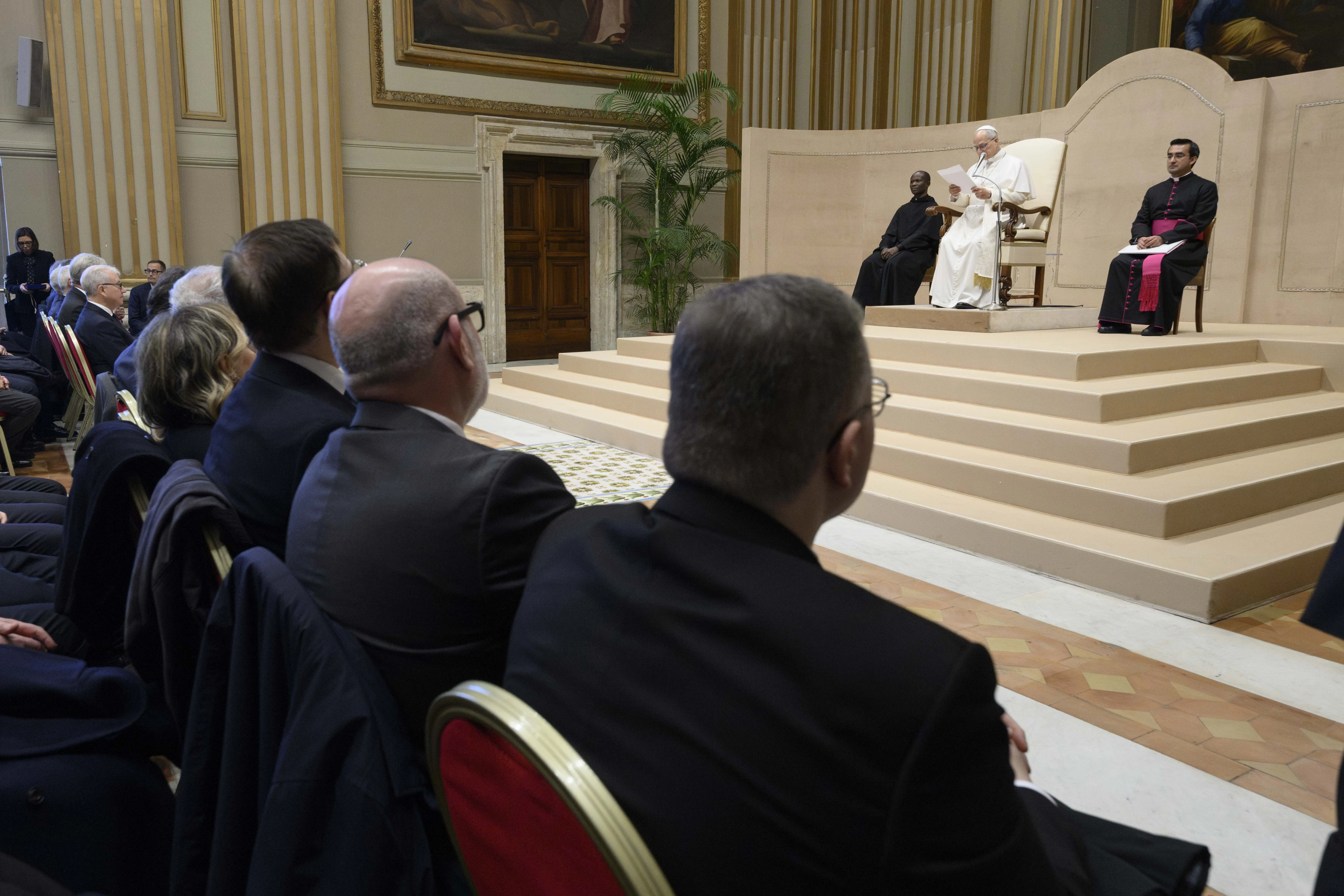He added that it is not only up to priests to provide much-needed spiritual accompaniment, but that there are many good lay men and women with valuable experiences to share.
“Christian faith is not something that can be learned from books or by simple reasoning. Instead, it is an existential journey that passes through our relationships. Our experience of faith thus always arises from somebody’s witness,” the pope said.
Pointing to St. Joseph as a model for fatherhood, Pope Francis reflected that Joseph had a remarkable “ability to know how to listen to God speaking to his heart.”
“I am convinced that the fatherly relationship that Joseph had with Jesus influenced his life so much that Jesus’ future preaching is filled with images and references taken precisely from paternal imagery,” the pope said.
“For example, Jesus says that God is Father and this statement cannot leave us indifferent, especially when we think about his personal human experience of fatherhood.”
“This means that Joseph was such a good father that Jesus found in this man’s love and paternity the most beautiful reference he could give to God,” he said.
Pope Francis, who began his pontificate on the feast of St. Joseph in 2013, said that he was always “nurtured a special devotion to St. Joseph” because he “represents what Christian faith should be for each of us, in a beautiful and simple way.”
“I always considered it a kindness from heaven to be able to begin my Petrine Ministry on March 19,” he reflected.
“I think that in some way St. Joseph wanted to tell me that he would continue to help me, to be beside me, and I would be able to continue to think of him as a friend I could turn to, whom I could trust, whom I could ask to intercede and pray for me.”
In November 2021, the pope began a new cycle of catechesis at his Wednesday general audiences dedicated to Jesus’ foster father. He presented the seventh installment in the series on Jan. 12.








